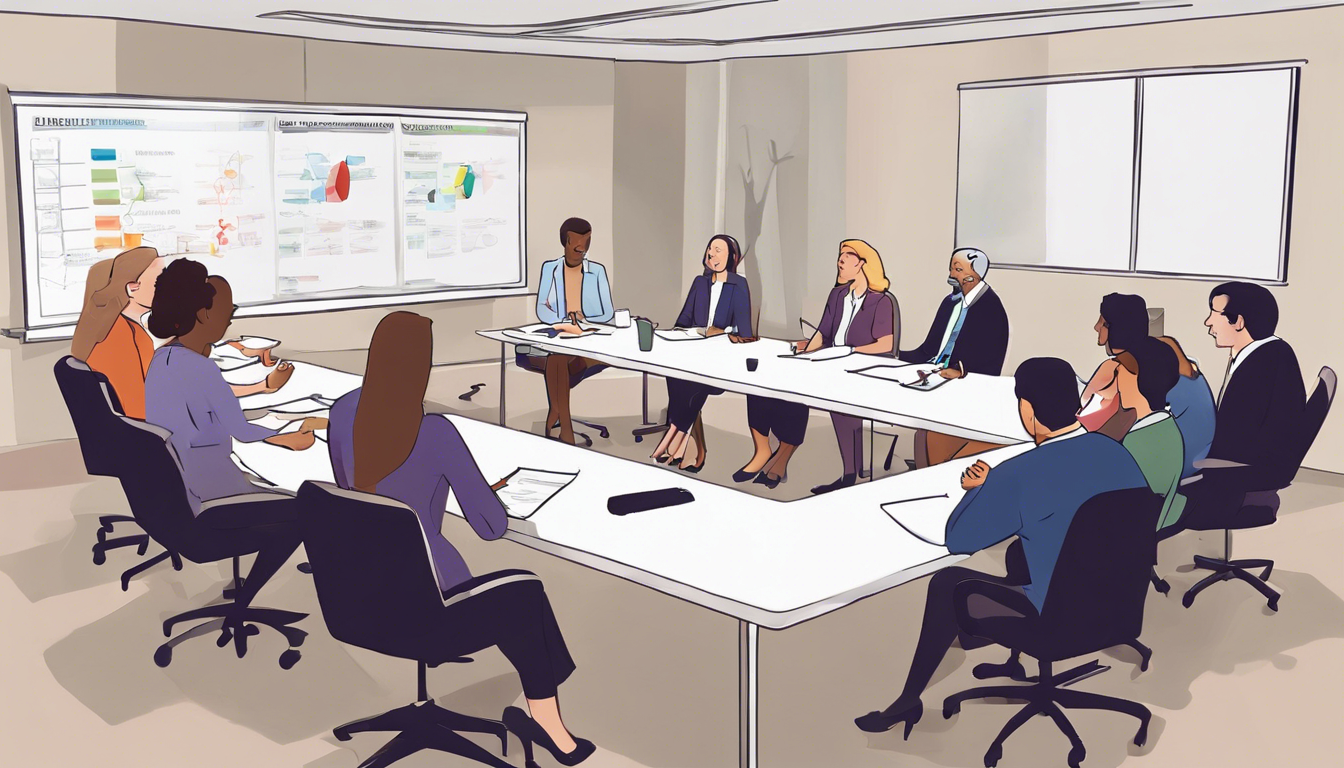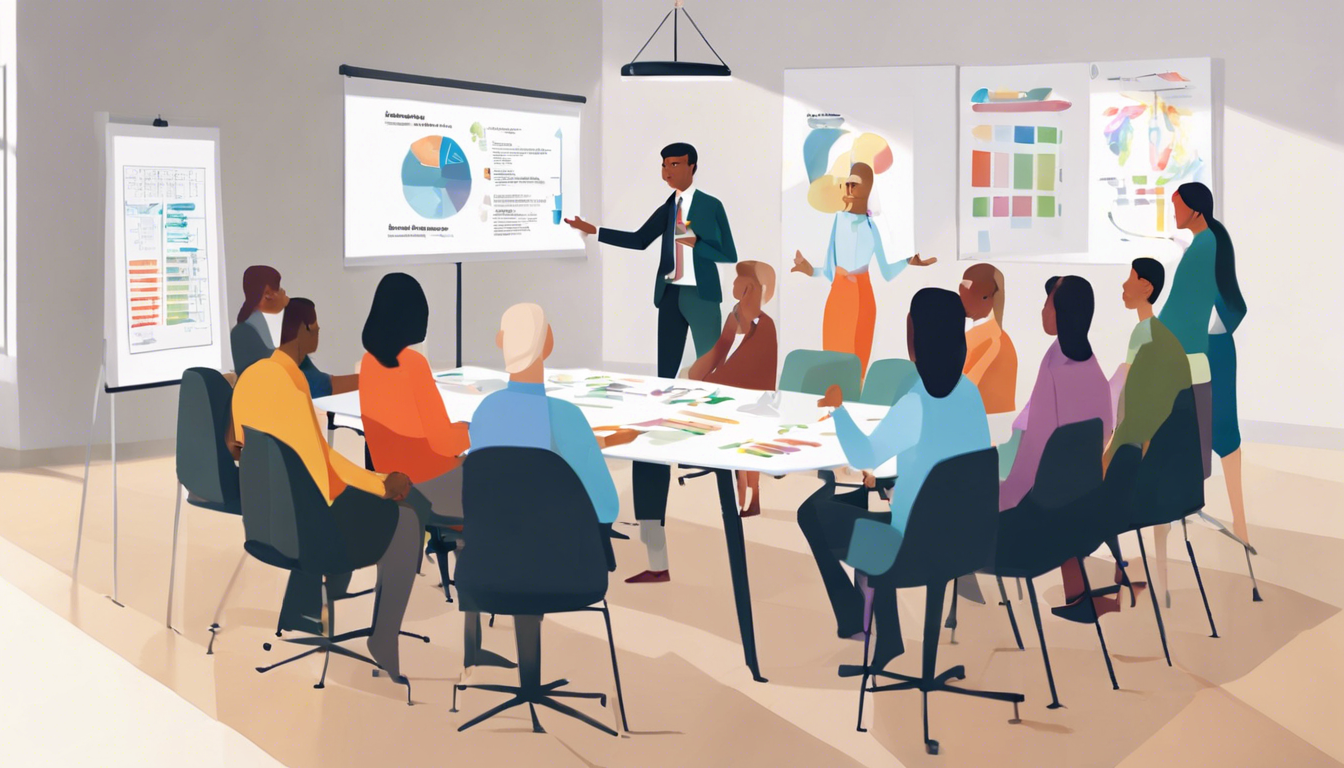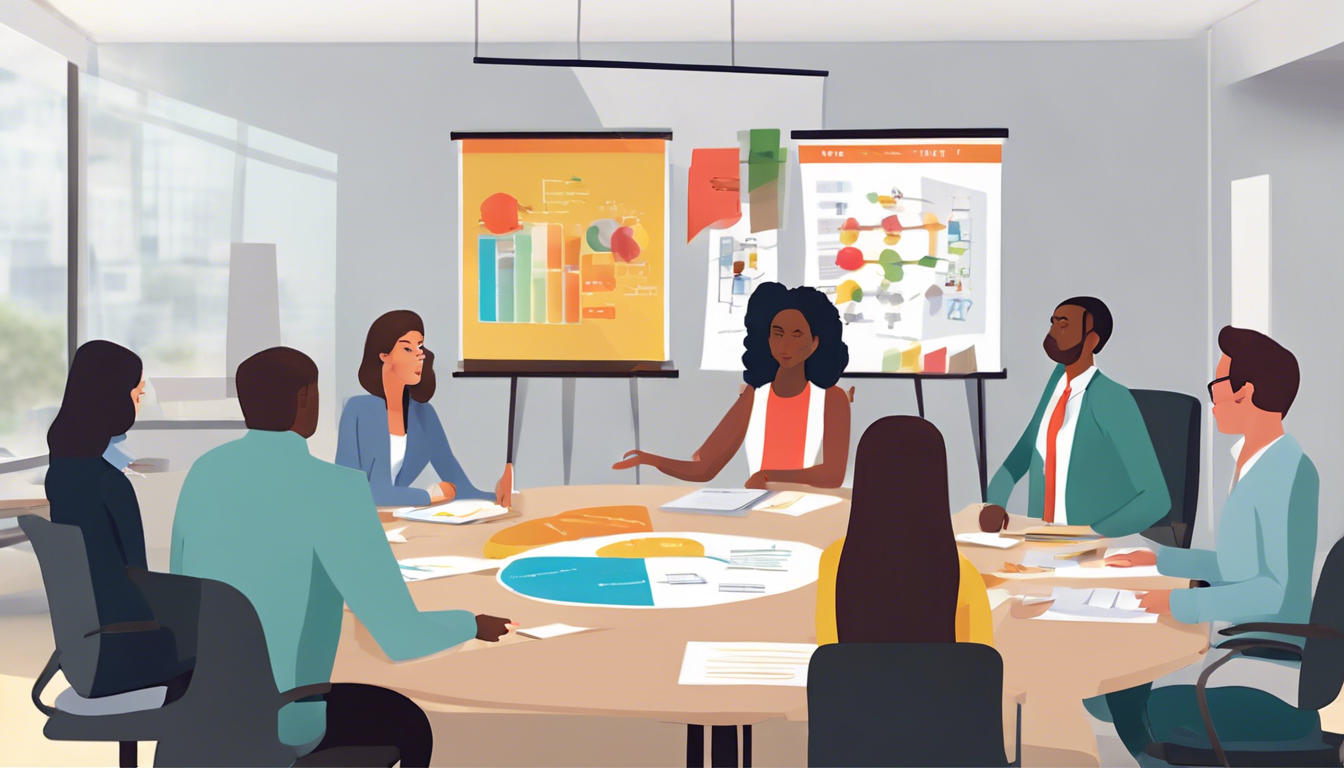The dynamics of a team are rich in diversity, with its multiple personalities sparkling and vibrating like the colors of a rainbow. Among the magical tools to harmonize this diversity, the MBTI occupies a central place. By offering a window into personality types, this model is a valuable guide for decoding behaviors, strengthening team cohesion, and navigating the intricacies of interpersonal conflicts. With the MBTI, we discover how to transform tensions into constructive conversations and set the rhythm for a calm and effective work atmosphere.

Optimizing conflict management within a team using the MBTI is an innovative and effective approach that relies on understanding personalities. The MBTI, or Myers-Briggs Type Indicator, is a psychological tool that identifies sixteen unique personality types based on perception and judgment. This allows for a deep understanding of individual differences within a team.
By understanding each person’s MBTI profile, a manager can anticipate potential sources of conflict, which often arise from misunderstandings and differing perspectives. Each profile has its own modes of communication, preferences, and reactions to stress, and the MBTI allows for adapting conflict management strategies to each situation and individual.
This knowledge strengthens team cohesion and improves communication, encouraging team members to view differences not as obstacles, but as opportunities to enrich the group. When leveraged, the MBTI promotes faster and more constructive conflict resolution by encouraging open communication and a strong team spirit.
A powerful tool, the MBTI is not only an aid for conflict management but also a catalyst for effective leadership development and optimization of collective performance.

understanding conflict dynamics with the MBTI
In the professional world, understanding the sources of conflicts is essential to establishing a calm work atmosphere. The MBTI is a powerful tool that helps decode interactions among colleagues by interpreting their personality types. With this method, tensions quickly dissipate as everyone learns to recognize and accept the ways of thinking and working of their colleagues.
practical tools to facilitate communication
To promote harmonious communication, the MBTI test proves to be a valuable resource. Indeed, this tool helps to establish mutual understanding, reducing misunderstandings. By questioning individuals about their preferences and behaviors, it becomes easier to tailor exchanges to their specific needs. This not only improves the work atmosphere but also enriches professional relationships, thereby reinforcing team cohesion.
Furthermore, using the model of the four questions based on the MBTI effectively targets issues during disagreements. By asking the right questions, the origin of conflicts becomes clearer, making resolution faster and more effective. For more tools, consult enriching resources on conflict management in the professional environment available here.
approaches to harmonize teams
Team building with the MBTI is a preferred approach to unite a team around a common goal. Team building activities allow team members to get to know each other better and understand each other’s uniqueness, which is a major asset for improving performance. By discovering different personalities through the MBTI, teams can anticipate and prevent conflicts, thereby strengthening the spirit of collaboration.
Using this method in the context of team building also brings to life the diverse talents and skills of team members. Many companies report the benefits they have gained in advancing cooperation among collaborators. To discover how team building with the MBTI is utilized in practice, take a look at this enriching experience.

FAQ
Q: What is MBTI and how can it help in conflict management within a team?
A: The MBTI is a tool for classifying personalities that can aid in better understanding how team members function. By identifying the various preferences of each individual, it is possible to adapt the communication style and conflict resolution to avoid misunderstandings and enhance cohesion.
Q: How can MBTI improve team cohesion?
A: By using the MBTI, teams learn to better understand their internal dynamics, which fosters open communication and reduces the risks of tensions. This consolidates team spirit and strengthens cooperation among members.
Q: Is the MBTI model suitable for all businesses?
A: Yes, the MBTI is a very flexible tool that can adapt to any type of organization. It helps to harmonize interpersonal relationships and adapt management according to the different personality types present in a team.
Q: Can team performance be improved with MBTI?
A: Absolutely. By focusing on mutual understanding and adaptation of behaviors, the MBTI helps to increase team effectiveness, as everyone knows better how to interact and contribute to collective success.
Q: Does using the MBTI require specific training to be effective?
A: While it is possible to use the MBTI informally, training or seeking the help of a certified coach can greatly enhance the understanding and application of the results to make them truly productive for the team.












